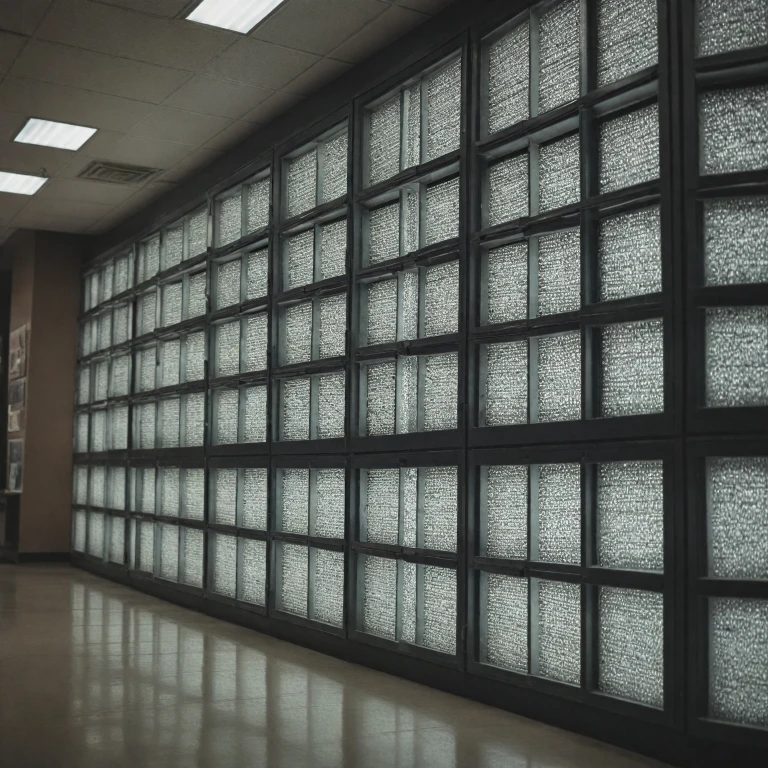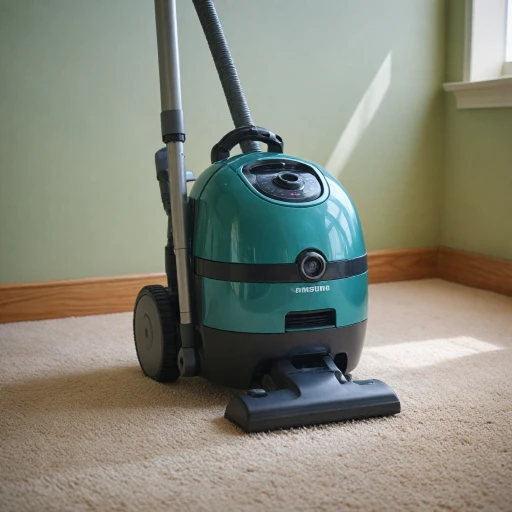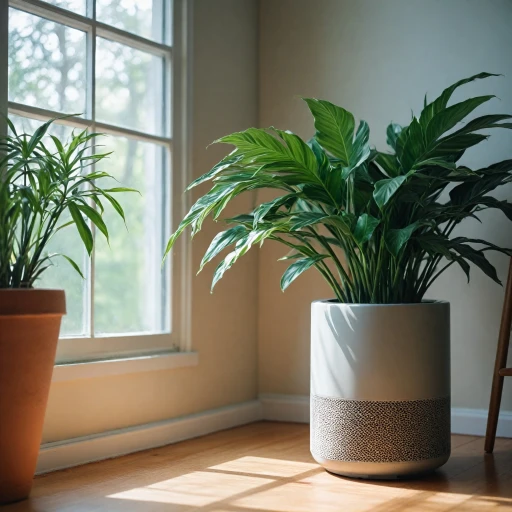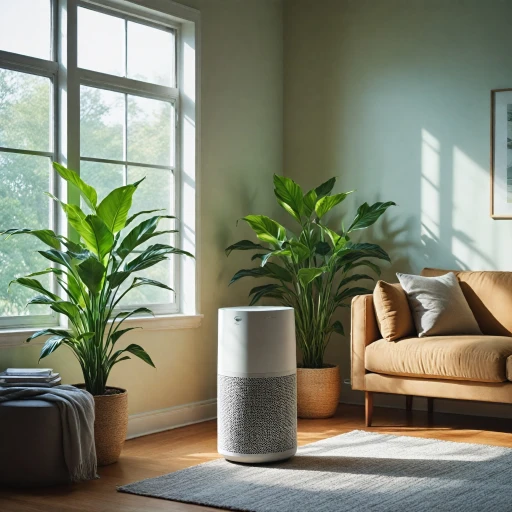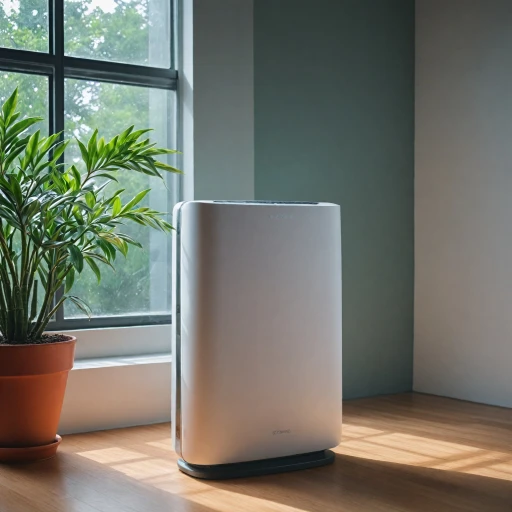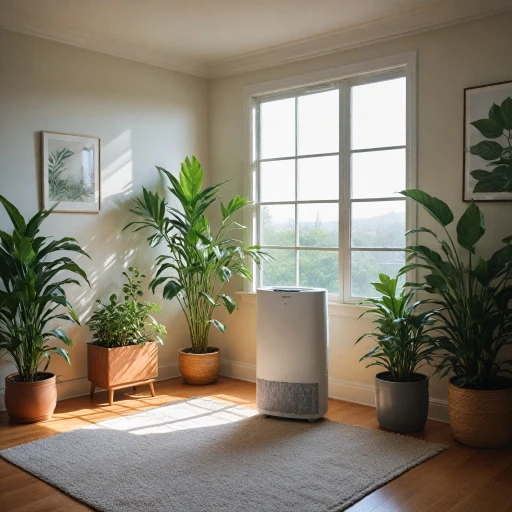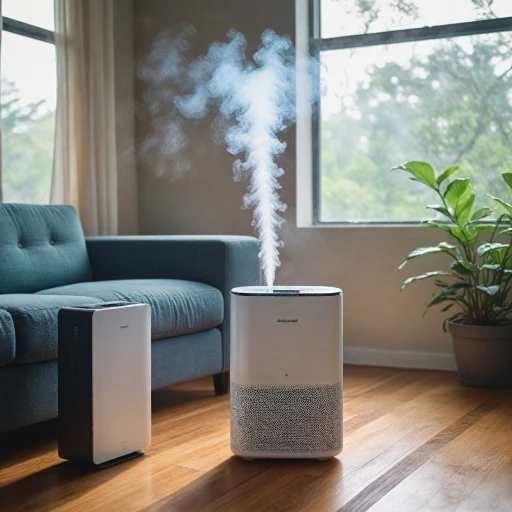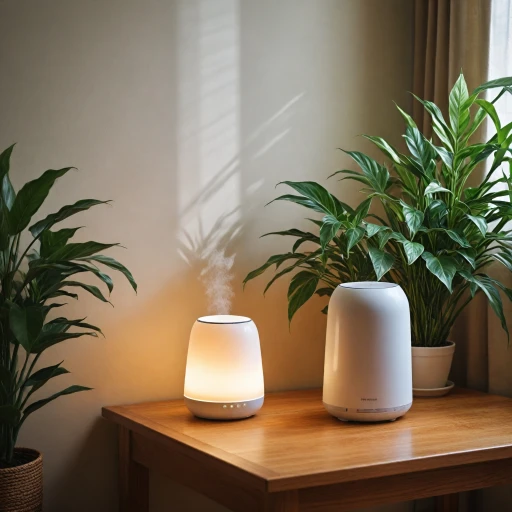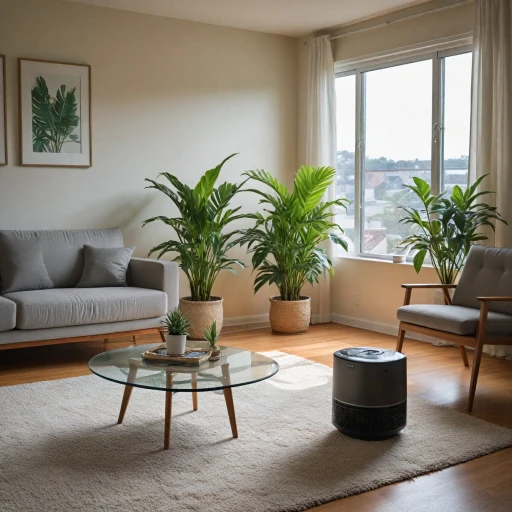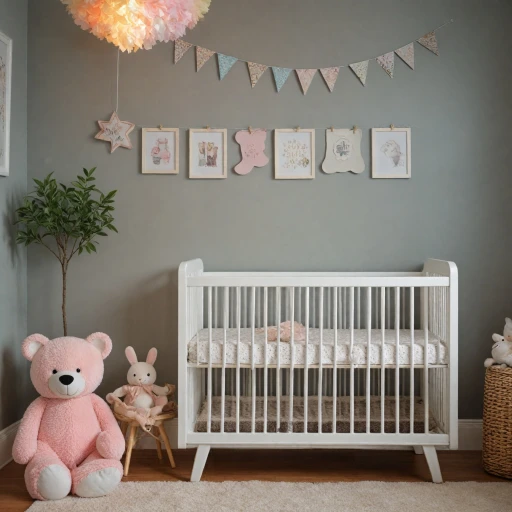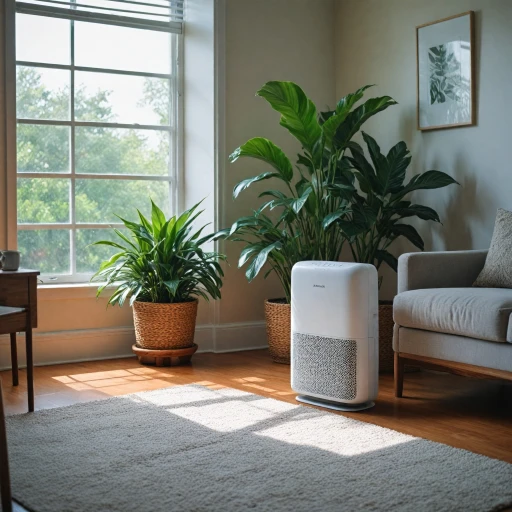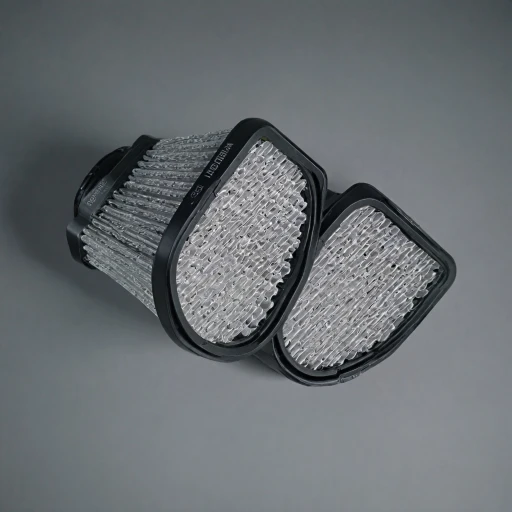
Understanding the Importance of Air Quality in Commercial Spaces
Air Quality in Commercial Spaces
Air quality in commercial spaces plays a crucial role in ensuring a healthy and productive environment. Whether it's an office, retail store, or industrial facility, the importance of clean air cannot be overstated. With numerous people occupying enclosed areas, pollutants such as smoke, dust, and chemicals can quickly degrade indoor air quality. This not only affects health but also reduces cognitive performance, especially in high-density settings.
Common Pollutants and Their Impact
Commercial spaces often face unique air quality challenges. These can include:
- Dust and Allergens: Can trigger allergies and respiratory issues.
- Volatile Organic Compounds (VOCs): Emitted from everyday products, they can cause headaches and irritation.
- Smoke and Odors: Affect air clarity and comfort, critical in hospitality and retail sectors.
Benefits of High-Quality Air Filtration
Implementing a robust air filtration system offers remarkable benefits. HEPA filters and activated carbon filters are particularly effective in capturing even the smallest particles, providing high efficiency filtration. These systems maintain a flow consistent with room requirements—measured in CFM (cubic feet per minute), ensuring that the highest setting meets the air demands of busy commercial environments.
Choosing the Right Air Purifier
Identifying your space’s specific air quality needs will guide you in selecting the best air purifiers for the job. Factors such as room size, the volume of foot traffic, and potential contaminants will inform this decision. When considering an air cleaner for your business, compare the benefits of different types of filters. For more insight on making this decision, explore this guide for further assistance.
Key Features to Look for in Commercial Air Filters
Essential Characteristics of Premium Commercial Filters
When selecting commercial air filters for your business environment, it’s important to consider key features that ensure optimal air purification. Whether you're dealing with smoke, dust, or other particles, the right filter can make all the difference in maintaining clean air quality.
- Filtration Efficiency: Look for filters that offer high efficiency in capturing tiny particles such as the HEPA filter. These filters are known for their ability to trap 99.97% of particles as small as 0.3 microns, making them ideal for improving indoor air quality.
- Airflow Capacity (CFM): The Cubic Feet per Minute rating measures how much air a filter can purify. Aim for a model that maintains a balance between CFM and efficiency to effectively accommodate your room size.
- Activated Carbon: Particularly useful in environments where odors or tobacco smoke are present, this feature helps in reducing gaseous pollutants. For more information on choosing the right option for such needs, consider this detailed guide.
- Price vs. Quality: Balancing the price against performance is crucial in ensuring you're investing in the best air purifier for your commercial needs. It's advisable to look at reviews of renowned brands like Coway and models such as the Coway Airmega for a higher assurance of quality.
- Long-Term Hygiene: Choose a filter system that supports easy replacement and maintenance. This ensures the longevity of high-air quality in your commercial space.
These features will help you navigate the vast market of air purifiers to find the one most suited to your business's specific requirements.
Comparing Different Types of Commercial Air Filters
Analyzing Types of Air Filters Available
When it comes to selecting the best commercial air filters, it's crucial to compare the different types available to ensure that they meet your specific requirements. Each type of filter offers unique benefits, and understanding these can significantly impact the air quality and efficiency of your commercial space.
HEPA Filters: High Efficiency, Particulate Arresting
HEPA filters are renowned for their ability to capture tiny particles, often down to 0.3 microns with a 99.97% efficiency rate. They're excellent for removing dust, pollen, and other allergens, making them a top choice for improving indoor air quality. However, HEPA filters may require a higher power setting, as indicated by their high Clean Air Delivery Rate (CADR), to match expected levels of clean air output.
Activated Carbon Filters: Tackling Odors and VOCs
For businesses dealing with strong odors or volatile organic compounds (VOCs), activated carbon filters are invaluable. These filters work by absorbing gaseous pollutants and smoke, making them popular for environments such as restaurants or smoking lounges. Activated carbon is highly effective when paired with HEPA filters, forming a comprehensive air filtration system.
Hybrid Filters: Combining Strengths
Hybrid filters often integrate multiple filtration technologies, combining particle filtration with odor and gas absorption. This approach can offer a balanced air purifier solution for commercial needs. Devices like the Coway Airmega utilize these hybrid systems, ensuring better air purification across larger room sizes.
To view details on how different air cleaner technologies stack up against cigarette smoke, explore various options to find the best fit for your application.
UV and Ionizers: Extra Layer of Protection
Some commercial air purifiers integrate UV-C light or ionizers. These features not only trap particles but also neutralize bacteria and viruses. While efficient, it is pivotal to weigh these options' benefits against their higher price points and maintenance needs.
Understanding commercial air filtration can be the key to implementing the most efficient system, ensuring both high air quality and cost-effective operation. These insights form a framework for evaluating cost versus performance, crucial for making an informed choice for your commercial space.
Evaluating Cost vs. Performance in Air Filter Selection
Assessing Cost and Performance for Optimal Selection
When it comes to choosing commercial air filters, the balance between cost and performance is pivotal. Striking the right balance can mean the difference between merely acceptable air quality and a truly clean environment. Here's how to make the decision-making process more manageable:- Compare Long-term vs. Initial Costs: Initial expenses can sometimes blindside us, but it's essential to look beyond upfront payments. Consider maintenance and replacement cycles, as a filter that needs frequent replacement might end up more costly in the long run.
- Value High-quality Filtration: Higher quality often equates to better air filtration. HEPA filters are renowned for their ability to trap fine particles, offering superior performance. Despite their higher price tag, they can provide a healthier indoor air quality, especially in spaces prone to smoke or high dust levels.
- Factor in Airflow and Space Requirements: Commercial spaces vary in size, and choosing a filter that aligns with the room's cubic feet per minute (CFM) requirements is key. Filters that block too much airflow can handicap a system's efficiency, thus diminishing its performance no matter the initial cost.
- Consider Compatibility with Air Purifiers: Brands like Coway offer highly efficient models such as the Airmega, which use a combination of HEPA and activated carbon filters. These ensure maximum particulate capture and odor elimination without compromising on airflow.
- Prioritize Specific Needs: If your space encounters smoke or other strong odors, filters with activated carbon are beneficial. For more dust and allergen-prone environments, focus on getting filters that excel in particulate filtration.
Installation and Maintenance Tips for Commercial Air Filters
Efficient Handling of Your Air Filter System
Ensuring clean air within commercial spaces is essential, and proper installation and maintenance of air filters play a pivotal role in achieving this. By understanding the pathway to keeping your air filtration system at its best, you can enhance both performance and lifespan, ultimately securing high air quality.Getting Started with Installation
- Correct Sizing: First and foremost, choose the right size of filter for your system. This involves knowing the CFM (cubic feet per minute) requirements of your HVAC unit to ensure it can support the resistance that high-efficiency filters like HEPA present.
- Positioning: Make sure air filters are installed in the correct orientation, which will be clearly marked by the manufacturer. This is critical for the filter to work effectively.
- Sealing: Ensure that all covers and housings are properly sealed so that air does not bypass the filter altogether.
Regular Maintenance Practices
Regular checkups are vital for maintaining the system’s integrity:- Frequency: Check filters every month during peak seasons. Replace them every three to six months to maintain the best air quality standards, although some high-efficiency air filters may have longer lifespans.
- Visual Inspection: Look out for any physical damage or blockages in the filter. An overly clogged filter can lead to reduced HVAC efficiency and increase energy bills.
- System Cleanliness: It's not just about the filters; ensure the entire system is free from dust and debris, particularly around the intake and exhaust.
Extend the Lifespan of Your Filters
- Use of Pre-Filters: Consider integrating pre-filters to catch larger particles, thereby extending the life of high-efficiency air filters like HEPA and activated carbon filters.
- Monitoring with Air Quality Devices: Utilize sensors and monitors to keep track of indoor air quality. This will help you know when changes to the filtration system are required.
Case Studies: Successful Implementation of Air Filters in Businesses
Real-world Applications and Success Stories
When businesses invest in commercial air filters, they’re not just buying equipment; they’re enhancing the health, safety, and productivity of their environments. Let’s take a closer look at some case studies where air filtration systems have made a significant impact.
Office Buildings: Enhanced Air Quality
One major office complex integrated a comprehensive air purification system featuring HEPA filters and activated carbon in all ventilation units. Following installation, air quality measurements revealed a significant reduction in airborne particles and an overall cleaner environment. Employee feedback highlighted improvements in indoor air quality and reduced symptoms of allergies.
Food Processing Plants: Meeting Health Standards
In the food industry, maintaining high air quality is critical. A large food processing plant integrated high efficiency HEPA filters with non-stop monitoring systems that ensured the filters operated at their highest setting. Not only did this help meet strict health regulations, but it also prevented contamination, safeguarding product quality.
Hospitals: Safeguarding Health
Healthcare facilities demand the best air cleaning solutions to ensure patient and staff safety. A recent hospital upgrade involved the installation of the Coway Airmega systems, known for their effective carbon filtration and ability to handle high CFM (cubic feet per minute) requirements. These enhancements drastically reduced the spread of airborne pathogens and improved overall air purification, allowing for cleaner, healthier rooms.
Retail Spaces: Customer Experience
In retail settings, the customer experience is paramount. A renowned department store chain employed air purifiers across its outlets to combat smoke and odors, choosing a system that balanced cost vs. performance effectively. As a result, customers frequently commented on the improved atmosphere, leading to increased store visits and sales.
These examples underscore the tangible benefits of investing in the right air filters for commercial applications. It’s clear that with the right combination of filtration features and strategic installation and maintenance, businesses can foster healthier, more productive environments while achieving cost-effectiveness.

